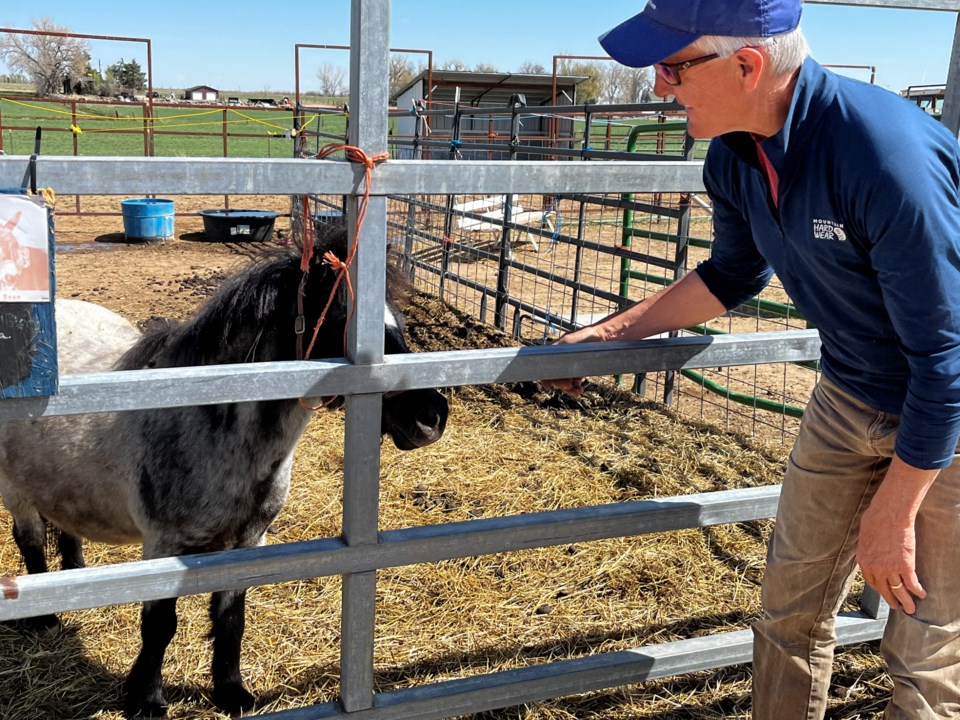Nineteen horses, three mini-horses, two miniature donkeys and a herd of goats and sheep work with people to alleviate anxiety, depression and PTSD at Medicine Horse ranch just outside Longmont.
Medicine Horse is a nonprofit organization that offers licensed therapist-led group sessions for free to veterans, people in recovery from substance abuse, people with disabilities, the LGBTQ community, women and people impacted by cancer, trauma and abuse survivors and more.
The nonprofit works to increase the availability and accessibility of mental health in Colorado by offering free sessions to participants. The free mental health is funded through a series of grants.
The ranch offers several areas to allow participants and animals to become comfortable with one another. The therapists coach participants on safety and allow them and the horses to move at their own pace. According to Dana Shultz, a therapist, some people are eager to interact with the horses while others need time to find the courage to approach them.
“We never want to push anybody out of their window of tolerance and that includes our horse partners,” Shultz said.
Horses are great communicators of their own needs, Shultz said. The center’s staff allows people to have their own experiences with the horses, as long as everyone is safe. A woman attended a session in which a horse rested its head on her shoulder for 40 minutes in support, said Ania Wells, development director for Medicine Horse.
“You never know what somebody else’s experience is,” Shultz said adding that the staff doesn’t always know what is therapeutically helpful to the participant.
Because horses are prey animals, they queue into their surroundings differently than other therapy animals such as dogs. Shultz said horses recognize when people are being their honest selves and respond to those emotions, even emotions of anger or sadness.
“It doesn’t matter if you are fearful, or mad, or sad, own it and it give the space that you don’t have to change this and it is ok for it to just be,” Shultz said.
According to Wells, participants, on several occasions, have discovered that the horse’s reaction to them has helped them identify their own behavior and has allowed them work on that topic with a therapist.
The therapists use the interactions with the horses to help people in their daily lives. For example, one person came to the ranch and did not want to bother a horse while it was eating in order to groom it. The therapist pointed out that the horse has ample access to hay all day and it was not a big ask to groom the horse for 30 minutes. The therapist then worked with this individual to help them realize that they are able to ask for reasonable requests in their own lives and do not need to sacrifice their own needs for others.
“It gives any of our participants, from our youngest kid to our oldest participant, that here is that objective data point that when you changed your behavior and were more authentic, more honest with yourself, this relationship between you and your horse changed,” Shultz said.
Medicine Horse staff offered 1,212 hours of equine facilitated therapy in 2023. It hopes to increase the number of group sessions it holds in 2024. Those interested in a session can find more information on the nonprofit’s site. Sessions are held for 6-8 weeks, depending on the program.



